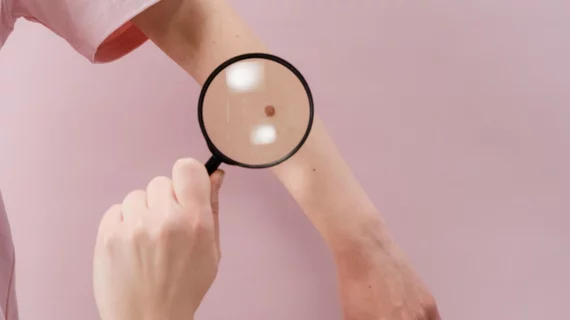From the Googleplex comes a free AI tool for skin diagnostics
Google Health is launching a free app that uses AI trained on more than 16,000 clinical dermatology cases and can identify hundreds of skin conditions, including cancers, with accuracy comparable to that of board-certified dermatologists in the U.S.
Several outlets broke the story Tuesday, including the Financial Times of London, which notes the tool’s ease of use for consumers as well as its accessibility to anyone on the Internet.
“The launch follows three years of development at Google, which has long viewed healthcare as a market ripe for disruption by advanced artificial intelligence,” FT points out. “It comes as rivals Apple, Amazon and Microsoft are also pushing into the potentially lucrative space, building healthcare services for consumers, physicians and pharmaceutical companies.”
The article quotes the cardiologist, author and AI aficionado Eric Topol, MD.
“This was bound to happen at some point,” says Topol, “as it was the first major deep-learning AI use case in medicine with some validation in 2017.”
Google has named the app Derm Assist and is planning its official release for later this year in Europe, where it’s already been cleared by the EU.
Approval by the FDA for a U.S. release is pending.
Get the rest from FT, CNET or the BBC. (Google’s promotional page here.)

